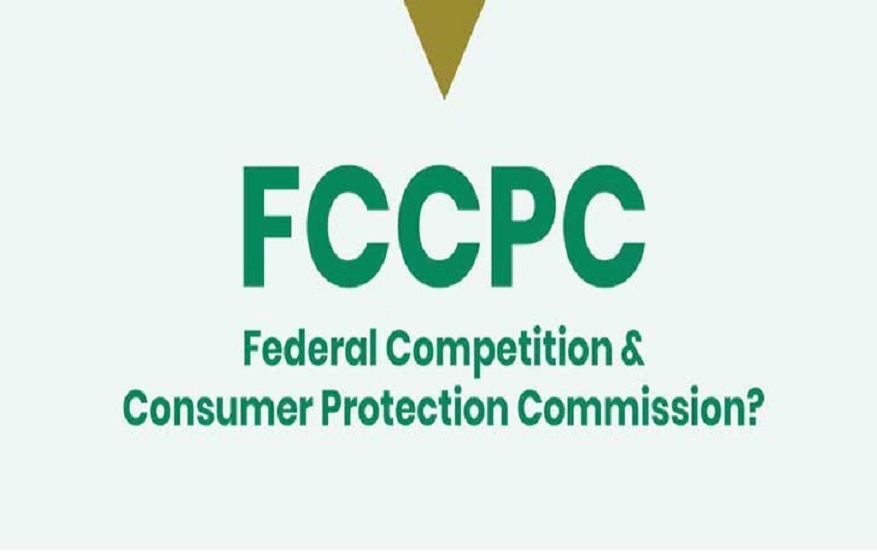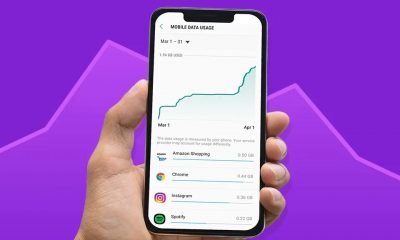General
African Competition Authorities Respond to COVID-19 Crisis

By Lerisha Naidu and Thato Mkhize
The substantial increase in confirmed COVID-19 cases in Africa has led to innumerable complaints of anti-competitive conduct from customers and consumers across the continent, who have expressed concerns over sudden price hikes of healthcare and hygiene products as well as identified essential products. This has prompted rapid responses from African competition authorities.
In South Africa, competition and consumer protection authorities are collaborating in efforts to examining complaints from customers and consumers implicating companies for excessive and/or exploitative pricing of essential products.
Such essential products include facemasks, toilet paper and hand sanitisers. In addition, South Africa’s Department of Trade, Industry and Competition has introduced new regulations, which together with existing competition regulations on excessive pricing, deal with pricing and supply matters during the national disaster.
These regulations do not prevent market players from implementing necessary price adjustments, their objective being to prevent unjustified price hikes and facilitate the collaboration of essential service providers in a regulated manner.
Further, essential service providers – the private healthcare sector, hotel industry, banking sector and retail property sector – have been granted block exemptions from certain provisions of the South African Competition Act, thereby enabling them to coordinate resources and infrastructure for the benefit of consumers during the period of the national disaster.
The country has also entered a 21-day lockdown period, which began on Thursday, 26 March 2020 and is due to end on 16 April 2020. During this period, all non-essential services providers are required to allow employees to operate from their homes in order to limit non-essential human interaction.
The lockdown has affected the operations of both the Competition Commission (Commission) and Competition Tribunal (Tribunal), requiring that both refocus their resources on complaints filed in relation to COVID-19 and other urgent matters over the 21 days.
The scaling down of operations by the competition authorities has proved to be necessary, not only to comply with the resolution of the National Coronavirus Command Council, but also to deal with the increase in COVID-19 complaints submitted to the Commission – 559 complaints have been received to-date.
In Namibia, the Namibian Competition Commission (NaCC) concluded a market analysis, which revealed that the price of immune boosters, hand sanitisers and 3ply facemasks have substantially increased due to growing demand for these essential products.
In response to this, the NaCC formed a dedicated task team under its Enforcement, Exemptions & Cartels Division, which will continue to investigate and prioritise price exploitation complaints in relation to essential healthcare and hygiene during the COVID-19 crisis.
The NaCC is cognisant of the fact that it is necessary for certain essential service providers to collaborate during this period; therefore, we can expect engagements between the NaCC and the Namibian government, with the aim of introducing block exemptions similar to those introduced in South Africa.
Mauritius has also experienced a surge in the pricing of essential goods in response to the COVID-19 pandemic.
In addition, certain suppliers of essential goods in Mauritius have come under the spotlight of the authority, suspected of creating artificial shortages of supplies.
In response, the Mauritian government has announced that its Competition Commission will be tasked with monitoring the market for unjustified price escalations of essential goods and will prosecute any businesses found to be engaging in such restricted trade practices during this period.
The rest of Southern Africa’s competition authorities are yet to issue cautionary measures or publish competition regulations in response of the effects of the COVID-19 pandemic on their markets.
Although the number of confirmed COVID-19 cases in the East African countries combined are significantly less than those reported in South Africa, competition authorities in Kenya, Tanzania, Malawi and Zambia have adopted a proactive approach to guarding against unjustified price hikes and the excessive pricing of essential goods during this period.
The Competition Authority of Kenya (CAK) has published a cautionary note warning manufacturers and retailers that are implicated in price fixing or any sort of price manipulation behaviour that they will be subject to an administrative penalty of up to 10% of turnover.
Further, the CAK has ordered the removal of exclusivity clauses in agreements between manufactures and distributors of maize flour, wheat flour, edible oils, rice, sanitizers and toilet papers, effective 26 March 2020.
Exclusive distribution agreements between market players interfere with the allocation of favourable prices in relation to essential goods. The CAK highlighted that negative effects of such agreements may be further exacerbated during pandemics such as COVID-19.
In addition, distributors who also operate in the downstream retail market have been requested to provide these essential goods to other retailers on non-discriminatory terms.
The Competition and Fair Trading Commission (CFTC) of Malawi concluded an investigation on 23 March 2020, which revealed that 11 pharmacies in Lilongwe and Blantyre were excessively pricing hand sanitisers, facemasks and gloves in response to the COVID-19 outbreak in Malawi. The CFTC has also published a cautionary note warning against excessive pricing during this period.
The Competition and Consumer Protection Commission of Zambia’s cautionary note was directed at companies and individuals that are excessively pricing hygiene products in response to the demand during the COVID-19 crisis.
The Fair Competition Commission in Tanzania has responded to the Ministry of Industry and Trade’s request to monitor and report on whether market players are maintaining reasonable prices on essential items such as sterilisers, masks and disinfectant hand wash during the COVID-19 pandemic.
From a West African perspective, Nigeria announced a 14-day lockdown of its two major cities, Lagos and Abuja, effective Monday, 30 March 2020 at 11pm.
Accordingly, the Federal Competition and Consumer Protection Commission (FCCPC) announced that it will be scaling down on its operations and available resources will be redirected to focus on COVID-19-related complaints and issues.
The FCCPC similarly published a cautionary notice to suppliers, retailers and online shopping platforms, warning them against irregularly increasing prices of essential hygiene products in response to increased demand caused by the COVID-19 epidemic.
The FCCPC has been active in the enforcement of competition laws amid the COVID-19 crisis. Currently, it has referred four supermarkets and their pharmacy distributors to court for conspiring to hike prices and selling essential products at unfair prices during the pandemic.
Apart from communication indicating the scaling down of operations by competition agencies in Morocco, Tunisia and Egypt, no other preventative measures in response to COVID-19 have been communicated by competition authorities in North Africa.
Numerous competition authorities in Africa are aware of the effects of unjustified price hikes and excessive pricing on already vulnerable economies.
They have responded by establishing specialised investigation teams, refocusing existing resources to COVID-19 specific complaints and introducing new competition regulations – as is the case in South Africa.
African competition authorities have further noted that collaboration between themselves and consumer protection authorities, as well as between competing essential service providers, is essential in order to enable countries to adequately respond to the COVID-19 crisis. Unprecedented times appear to have called for unprecedented measures for competition authorities across Africa.
Lerisha Naidu is a Partner at Sphesihle Nxumalo and Associate at Baker McKenzie Johannesburg, while Thato Mkhize is a Candidate Attorney, Competition and Antitrust Practice at Baker McKenzie Johannesburg
General
NISO Attributes Electricity Woes to Inadequate Gas Supply

By Adedapo Adesanya
The Nigerian Independent System Operator (NISO) has attributed the poor power supply facing a considerable number of Nigerians to inadequate gas supply to thermal power plants.
Business Post reports that epileptic power supply has plagued consumers in Lagos, Oyo, Abuja, and Osun, among others, this month, leading to worries. Also, some businesses have recorded losses due to the epileptic power supply in their areas.
In a statement posted on its X handle, NISO disclosed that average available generation on the national grid currently stands at about 4,300 megawatts (MW), with the low output primarily attributed to gas supply constraints.
The system operator noted that thermal power plants, which account for the dominant share of Nigeria’s electricity generation mix, require an estimated 1,629.75 million standard cubic feet (MMSCF) of gas per day to operate at optimal capacity. However, as of February 23, 2026, actual gas supply to the plants was approximately 692.00 MMSCF per day.
The available supply represents less than 43 per cent of the daily gas requirement, resulting in constrained generation output and reduced electricity allocation to Distribution Companies (DisCos).
NISO, which independently manages the nation’s electricity grid, explained that any disruption or limitation in gas supply directly affects available generation capacity and overall grid output, given the heavy reliance on thermal plants.
It added that when total system generation drops significantly, the operator is compelled to implement load shedding across the network while dispatching available energy in line with allocation percentages approved under the Multi-Year Tariff Order (MYTO) framework of the Nigerian Electricity Regulatory Commission (NERC), to maintain grid stability and prevent system disturbances.
While expressing regret over the inconvenience to electricity consumers and market participants, NISO said it is working closely with relevant stakeholders to restore full energy allocation once gas supply improves and generation capacity returns to normal levels.
General
EFCC Re-Arraigns ex-AGF Malami, Wife, Son Over Alleged Money Laundering

By Adedapo Adesanya
The Economic and Financial Crimes Commission (EFCC) has re-arraigned former Attorney-General of the Federation (AGF), Mr Abubakar Malami (SAN), his wife, Mrs Asabe Bashir, and son, Mr Abdulaziz Malami, on money laundering charges.
They were brought before Justice Joyce Abdulmalik of the Federal High Court in Abuja, following the re-assignment of the case to the new trial judge.
Upon resumed hearing, EFCC’s lawyer, Mr Jibrin Okutepa (SAN), informed the court that the matter was scheduled for defendants’ re-arraignment.
“The matter is coming before your lordship this morning for the very first time. I will be applying for the plea of the defendants to be taken,” he said.
Mr Okutepa equally applied that the sums listed in Counts 11 and 12 be corrected to read N325 million instead of N325 billion for Count 11, and N120 million instead of N120 billion for Count 12.
When it was not opposed by the defence lawyer, Mr Joseph Daudu (SAN), Justice Abdulmalik granted the oral application by Mr Okutepa.
The defendants, however, pleaded not guilty to the 16 counts preferred against them by the anti-graft agency bordering on money laundering.
Justice Obiora Egwuatu had, on February 12, withdrawn from the case shortly after the civil case filed by the EFCC was brought to him.
The case was formerly before Justice Emeka Nwite, who sat as a vacation judge during the Christmas/New Year break.
After the vacation period, the CJ reassigned the cases to Justice Egwuatu, who had now recused himself, before it was reassigned to Justice Abdulmalik.
The former AGF, his wife, and son were earlier arraigned before Justice Nwite on December 30, 2025.
While Malami and his son were remanded at Kuje Correctional Centre, Asabe was remanded at Suleja Correctional Centre before they were admitted to N500 million bail each, on January 7, with two sureties each in the like sum.
General
INEC Shifts 2027 Presidential, N’Assembly Elections to January 16

By Adedapo Adesanya
Nigeria will hold next year’s presidential and National Assembly elections a month earlier than planned, after the Independent National Electoral Commission (INEC) revised the polling schedule.
The elections will be held on January 16, instead of the previously announced date of February 20, INEC said in an X post, signed by Mr Mohammed Kudu Haruna, National Commissioner and Chairman, Information and Voter Education Committee.
There were also changes to the Governorship and State Houses of Assembly elections initially fixed for Saturday, March 6 2027, in line with the Electoral Act, 2022, have now been moved to Saturday, February 6, 2027.
The electoral commission said the changes were caused by the enactment of the Electoral Act, 2026 and the repeal of the Electoral Act, 2022, which introduced adjustments to statutory timelines governing pre-election and electoral activities.
“The Commission reviewed and realigned the schedule to ensure compliance with the new legal framework,” it said.
INEC said party primaries (including resolution of disputes) will commence on April 23, 2026 and end on May 30, 2026, after which Presidential and National Assembly campaigns will begin on August 19, 2026, while Governorship and State Houses of Assembly campaigns will begin on September 9, 2026.
It noted that campaigns will end 24 hours before Election Day, and political parties have been advised to strictly adhere to the timelines.
INEC also stated it will enforce compliance with the law.
The electoral body also rescheduled the Osun Governorship election which was earlier scheduled for Saturday, August 8 2026, by a week to Saturday, August 15, 2026.
INEC noted that some activities regarding the Ekiti and Osun governorship elections have already been conducted, and the remaining activities will be implemented in accordance with the Electoral Act, 2026.
Speaking at a news briefing in Abuja two weeks ago, the chairman of INEC, Mr Joash Amupitan, expressed the readiness of the commission to conduct the polls next year.
The timetable issued by the organisation for the polls at the time came when the federal parliament had yet to transmit the amended electoral bill to President Bola Tinubu for assent.
Later that week, the Senate passed the electoral bill, reducing the notice of elections from 360 days to 180 days, while the transmission of results was mandated with a proviso.
-

 Feature/OPED6 years ago
Feature/OPED6 years agoDavos was Different this year
-
Travel/Tourism10 years ago
Lagos Seals Western Lodge Hotel In Ikorodu
-

 Showbiz3 years ago
Showbiz3 years agoEstranged Lover Releases Videos of Empress Njamah Bathing
-

 Banking8 years ago
Banking8 years agoSort Codes of GTBank Branches in Nigeria
-

 Economy3 years ago
Economy3 years agoSubsidy Removal: CNG at N130 Per Litre Cheaper Than Petrol—IPMAN
-

 Banking3 years ago
Banking3 years agoSort Codes of UBA Branches in Nigeria
-

 Banking3 years ago
Banking3 years agoFirst Bank Announces Planned Downtime
-

 Sports3 years ago
Sports3 years agoHighest Paid Nigerian Footballer – How Much Do Nigerian Footballers Earn

















